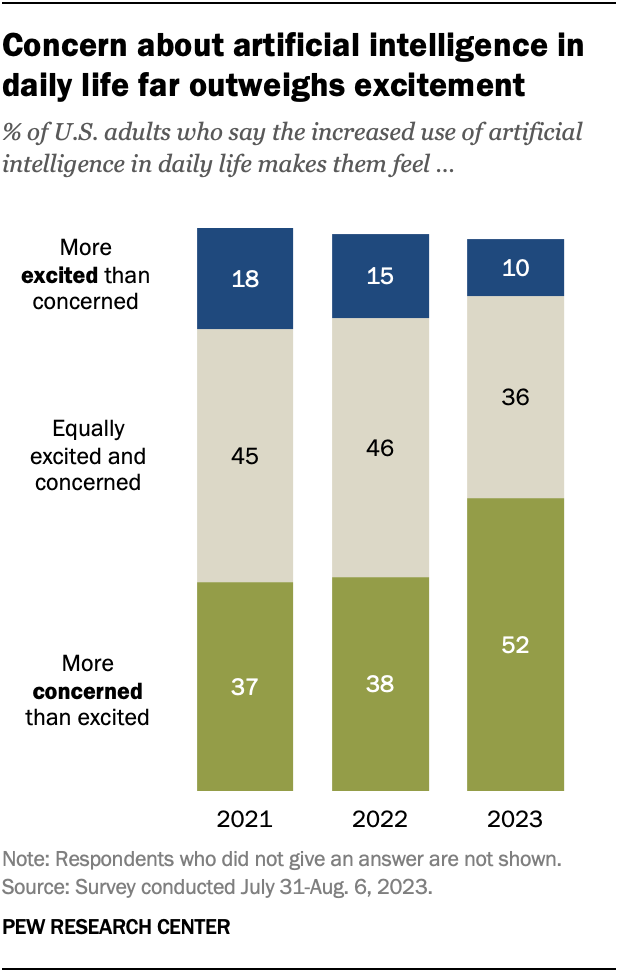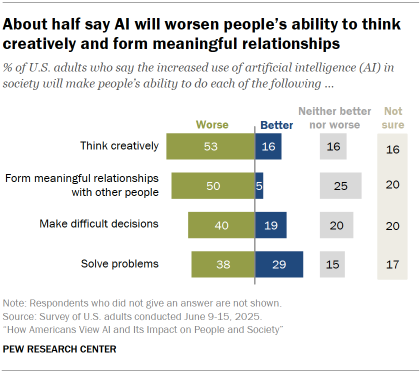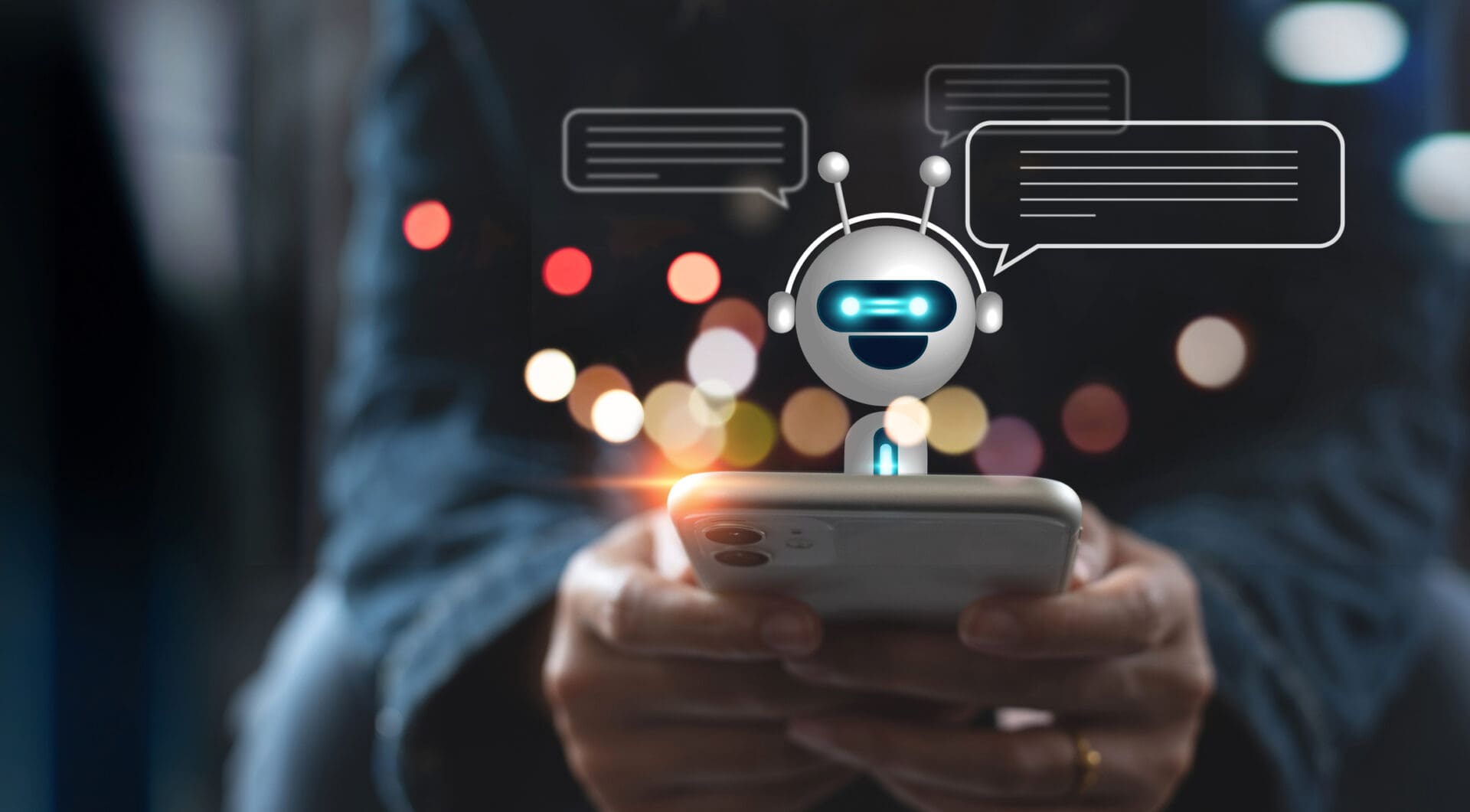Society’s Outlook on AI Shifts Sharply: From Excitement to Caution
Society’s Outlook on AI Shifts Sharply: From Excitement to Caution

In a world where artificial intelligence powers everything—from digital assistants to healthcare diagnostics—public perception is changing fast. A recent Pew Research Center survey reveals a sharp turn in how people feel about AI’s growing influence in daily life.
🧠 The Big Shift: Concern Over Excitement

According to the report, 50% of U.S. adults say they feel more concerned than excited about AI’s expansion—a big leap from just a few years ago. While nearly everyone (95%) has heard of AI, the majority now see it as a technology that poses serious risks to privacy, creativity, and trust.
People are comfortable with AI crunching massive datasets, forecasting weather, or designing new materials—but they grow uneasy when AI starts mimicking human emotion, making hiring decisions, or shaping relationships.
⚙️ What Drives the Concern?

-
Job Replacement Fears: Automation is expanding faster than expected, and many workers worry about job security.
-
Bias & Ethics: From hiring algorithms to criminal justice tools, bias in AI decision-making has raised ethical red flags.
-
Loss of Human Connection: As AI tools take over tasks like tutoring, companionship, and content creation, people fear society could lose touch with genuine human interaction.
💡 Where AI Still Wins Support

Despite the growing skepticism, most respondents still support AI in fields such as:
-
Medical Research – Accelerating vaccine and drug discovery.
-
Climate Modeling – Improving predictions and early warning systems.
-
Education – Personalized learning for students through adaptive AI tutors.
🌍 A Future of Balanced Coexistence

The evolving sentiment doesn’t signal a rejection of AI—but rather a call for responsible innovation. Experts believe the focus should now shift toward transparent, ethical, and human-centered AI development.
If the world can find a balance between AI’s potential and its pitfalls, humanity could enter an era where machines amplify our intelligence rather than replace it.
Comments
Post a Comment